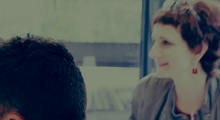Searching for a job differently: winning strategies and...

Discover the KEDGE MBA through the eyes of Gérald BRUN
Explore the many facets of the KEDGE MBA through the eyes of our graduates. Successes, challenges overcome and valuable advice, discover how this transforming experience forged their path to professional excellence.
In a few words, who are you and what is your background?
Born into a family of bricklayers and farmers, I grew up in the Fronsadais region of the Gironde, a beautiful hilly area covered in vines and dotted with woods, small ponds and streams. At the end of my mechanical engineering studies at university, I decided to embark on a start-up with a captain who wanted to move towards a 100% renewable world.
It's a rare occurrence that the aforementioned start-up, Valorem, has grown, developed and become one of the market leaders in wind power and photovoltaics in France. After 27 years in-house at VALOREM (research manager, project manager, agency manager, development director and business unit director), I decided to jump ship, where the agility of the early days had given way to a centralized organization that didn't suit my personality.
After a 3-month break, during which I had the chance to sail and learn a few sailing notions, I seized the opportunity to take charge of a new team with a view to helping it grow. EURASOLIS, a subsidiary of EURALIS, is an agricultural cooperative based in the south-west of France, with a presence in 16 countries and an exceptional capacity for agility and innovation. Its project corresponded perfectly to what I wanted to do: develop photovoltaics with and for farmers.
Why did you choose an Executive MBA at KEDGE Business School?
My technical and academic background has enabled me to grasp a wide range of project development issues. In the field, I learned to convince and deploy the persuasive force needed to conquer new areas.
As my team grew, I gained the experience I needed to guide my colleagues, motivate them and help them grow.
The Executive MBA seemed a natural choice to structure my empirical experience, identify the origins of certain malfunctions in my practices and act more effectively.
How did the MBA help you anticipate the transitions facing companies and organizations today?
Companies are facing a world of accelerating volatility, uncertainty, complexity and ambiguity. This awareness, which is a prerequisite for action, was triggered for me by all the professors whose contributions helped me to better understand the transitions underway. Exchanges with other students, faced with constant changes in their own environment, were also very instructive.
As soon as you become aware of the origins of change, it becomes more natural to try to anticipate solutions adapted to each activity.
In a business environment that is becoming increasingly digitalized and "environmentalized", how has the MBA enabled you to better understand the importance of human capital in the changes that companies need to make?
As soon as we identify the changes we need to make in our organizations to anticipate transitions, we need to mobilize the men and women who make up our organizations. Emotional intelligence not being my main strength, the courses devoted to business organization, management and leadership enabled me to learn how to structure my actions to bring about change.
In your opinion, what have been the main contributions of the MBA to your professional development?
The Executive MBA gave me the ability to grasp many of the challenges that leaders have to face: understanding market trends and anticipating change, developing a vision and defining strategies, communicating them and getting teams on board, mobilizing human and financial resources, and managing change.
Since completing the Global EMBA, I've become a different person: serene and confident in my ability to act, while retaining my humanity and humility.




0 Comment
You must be logged in to leave a comment.
No comment